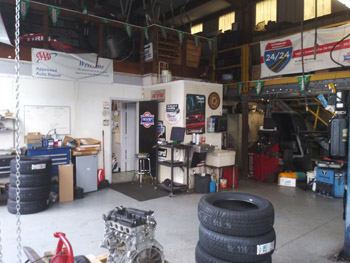All Categories
Featured
Routine engine tune-ups are important for preserving your car's performance, improving fuel effectiveness, and extending its life-span. Whether you're a seasoned auto proprietor or a newbie, comprehending the vital elements of an engine tune-up can aid you keep your car running efficiently for several years. Below are some important suggestions to guide you with the process.
- Modification the Flicker Plugs. Ignition system are little yet magnificent elements that play a vital function in stiring up the fuel-air mixture in your engine. In time, they can wear out or end up being fouled, resulting in inadequate engine performance, reduced gas performance, and difficult starts.
During a tune-up, examine your ignition system for wear and change them as essential. For a lot of automobiles, spark plugs need to be replaced every 30,000 to 100,000 miles, relying on the type and product. Fresh ignition system make sure effective burning and smoother engine operation.
- Check and Replace the Air Filter. The air filter is your engine's initial line of protection against dust, particles, and other pollutants. A stopped up or filthy air filter can restrict air flow, creating your engine to function tougher and eat more fuel.
Examine your air filter during a tune-up and change it if it's dirty or previous its suggested service period. A tidy air filter improves engine efficiency and enhances fuel economy.
- Examine the Fuel System. With time, your gas system can gather dust and carbon deposits, lowering engine efficiency and fuel performance. Cleaning the gas injectors and fuel lines throughout a tune-up aids keep appropriate fuel delivery and combustion.
You can use a gas system cleaner or have an expert mechanic carry out an extra complete cleansing. This action is especially beneficial for older lorries or automobiles often driven in stop-and-go website traffic.
- Evaluate the Belts and Tubes. Belts and hoses are vital for different engine features, such as running the alternator, water pump, and cooling. Throughout a tune-up, check for cracks, fraying, or indicators of endure these parts.
Change any type of worn-out belts and hoses to stop prospective break downs. A damaged belt or leaking pipe can cause engine overheating or loss of power, so resolving these problems promptly is important.
- Change the Engine Oil and Oil Filter. Engine oil is essential for oiling relocating parts, reducing friction, and controling engine temperature. In time, oil ends up being contaminated and sheds its efficiency.
As part of a tune-up, replace the engine oil and oil filter. Make use of the kind of oil suggested by your lorry's producer and stay with the suggested modification intervals. Tidy oil maintains your engine running efficiently and prevents premature wear.
- Evaluate the Battery and Billing System. A healthy battery is important for starting your automobile and powering its electrical systems. Throughout a tune-up, check the battery's voltage and evaluate the terminals for rust. Clean the terminals if needed and ensure a safe and secure connection.
Additionally, examination the generator and billing system to ensure your battery stays billed during operation. If your battery is weak or old, think about changing it to stay clear of unforeseen break downs.
- Flush and Replenish the Coolant. The cooling system manages your engine's temperature level, preventing it from overheating. Old or polluted coolant can lose its performance, leading to prospective engine damages.
Throughout a tune-up, flush the old coolant and replace it with a fresh blend. Inspect the radiator, thermostat, and hose pipes for leakages or damages. Maintaining the cooling system in great condition guarantees your engine operates at the right temperature.

- Address Warning Lights and Unusual Symptoms. Modern automobiles are outfitted with diagnostic systems that alert you to prospective concerns via dashboard warning lights. If your check engine light or any type of other cautioning indications are on, address them throughout your tune-up.
Furthermore, take notice of uncommon signs and symptoms such as weird noises, rough idling, or decreased fuel efficiency. An expert auto mechanic can detect and resolve these problems throughout the tune-up process.
- Don't Forget the Exhaust System. Your vehicle's exhaust system eliminates hazardous gases from the engine and makes sure appropriate emissions. Evaluate the exhaust system for leakages, corrosion, or damages throughout a tune-up. A faulty exhaust system can affect engine performance and bring about environmental and safety issues.
- Use High-Quality Components and Fluids. When changing parts or rounding off fluids during a tune-up, constantly choose for premium items that fulfill your vehicle's specifications. Making use of subpar components or incorrect fluids can adversely impact your engine's performance and long life.
Final Thought: Routine Tune-Ups Are Secret to Engine Wellness. Putting in the time to tune up your engine guarantees it operates effectively, saves fuel, and minimizes the danger of break downs. Whether you execute these tasks on your own or rely upon a relied on auto mechanic, regular tune-ups are a financial investment in your automobile's reliability and longevity. Follow these suggestions, and you'll delight in a smoother, more reliable experience for many years to find.
Latest Posts
Why Routine Vehicle Maintenance at Montclare Auto Repair Saves You Money
Find Out Save Big on Car Maintenance with Montclare Auto Repair’s Special Deals
Secure Your Home with Top Quality Residential Roofing
More
Latest Posts
Why Routine Vehicle Maintenance at Montclare Auto Repair Saves You Money
Find Out Save Big on Car Maintenance with Montclare Auto Repair’s Special Deals
Secure Your Home with Top Quality Residential Roofing
